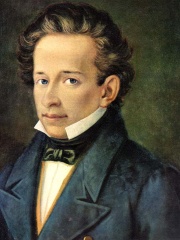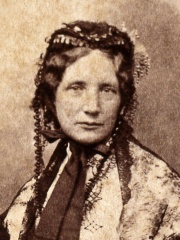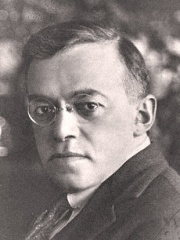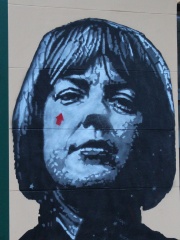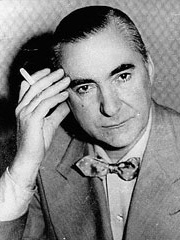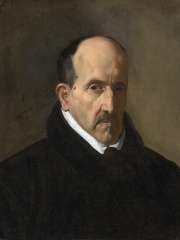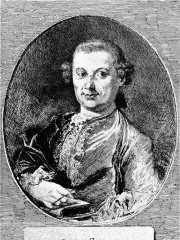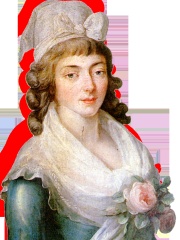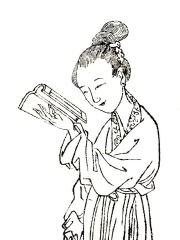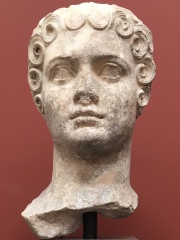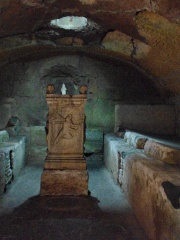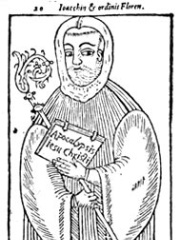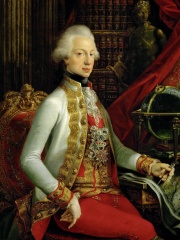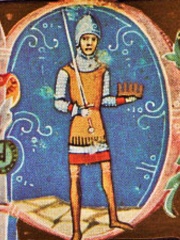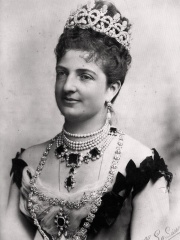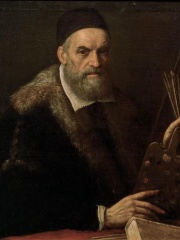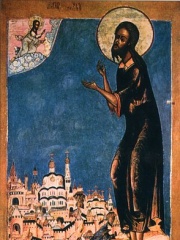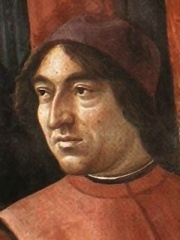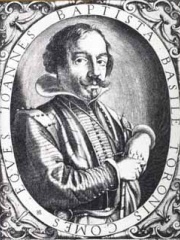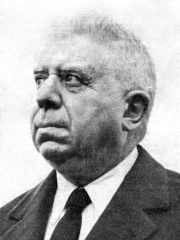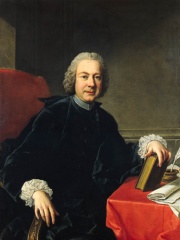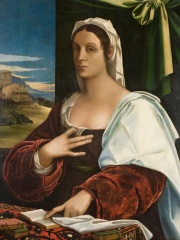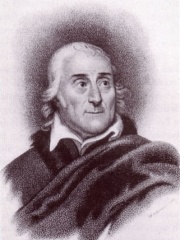WRITER
Gaius Valerius Flaccus
45 - 95

 Gaius Valerius Flaccus
Gaius Valerius Flaccus
Gaius Valerius Flaccus (; died c. AD 90) was a 1st-century Roman poet who flourished during the "Silver Age" under the Flavian dynasty, and wrote a Latin Argonautica that owes a great deal to Apollonius of Rhodes' more famous epic. Read more on Wikipedia
His biography is available in 37 different languages on Wikipedia (up from 35 in 2024). Gaius Valerius Flaccus is the 664th most popular writer (up from 1,139th in 2024), the 830th most popular biography from Italy (up from 1,278th in 2019) and the 55th most popular Italian Writer.
Gaius Valerius Flaccus is most famous for his poem, "Argonautica," which tells the story of Jason and the Argonauts' quest for the Golden Fleece.
Memorability Metrics
Page views of Gaius Valerius Flaccus by language
Among WRITERS
Among writers, Gaius Valerius Flaccus ranks 664 out of 7,302. Before him are Giacomo Leopardi, Harriet Beecher Stowe, Ze'ev Jabotinsky, Ingeborg Bachmann, Francesca da Rimini, and Alvin Toffler. After him are Carlos Fuentes, Curzio Malaparte, Luis de Góngora, Carlo Gozzi, Madame Roland, and A. A. Milne.
Most Popular Writers in Wikipedia
Go to all RankingsGiacomo Leopardi
1798 - 1837
HPI: 71.01
Rank: 658
Harriet Beecher Stowe
1811 - 1896
HPI: 71.01
Rank: 659
Ze'ev Jabotinsky
1880 - 1940
HPI: 71.00
Rank: 660
Ingeborg Bachmann
1926 - 1973
HPI: 71.00
Rank: 661
Francesca da Rimini
1259 - 1285
HPI: 70.99
Rank: 662
Alvin Toffler
1928 - 2016
HPI: 70.97
Rank: 663
Gaius Valerius Flaccus
45 - 95
HPI: 70.97
Rank: 664
Carlos Fuentes
1928 - 2012
HPI: 70.95
Rank: 665
Curzio Malaparte
1898 - 1957
HPI: 70.95
Rank: 666
Luis de Góngora
1561 - 1627
HPI: 70.93
Rank: 667
Carlo Gozzi
1720 - 1806
HPI: 70.91
Rank: 668
Madame Roland
1754 - 1793
HPI: 70.91
Rank: 669
A. A. Milne
1882 - 1956
HPI: 70.88
Rank: 670
Contemporaries
Among people born in 45, Gaius Valerius Flaccus ranks 1. After him are Ban Zhao, Domitilla the Younger, and Tettius Julianus. Among people deceased in 95, Gaius Valerius Flaccus ranks 1. After him are Gaius Musonius Rufus, and Titus Flavius Clemens.
Others Born in 45
Go to all RankingsGaius Valerius Flaccus
WRITER
45 - 95
HPI: 70.97
Rank: 1
Ban Zhao
PHILOSOPHER
45 - 115
HPI: 68.55
Rank: 2
Domitilla the Younger
RELIGIOUS FIGURE
45 - 69
HPI: 62.30
Rank: 3
Tettius Julianus
MILITARY PERSONNEL
45 - Present
HPI: 59.09
Rank: 4
Others Deceased in 95
Go to all RankingsGaius Valerius Flaccus
WRITER
45 - 95
HPI: 70.97
Rank: 1
Gaius Musonius Rufus
PHILOSOPHER
25 - 95
HPI: 66.81
Rank: 2
Titus Flavius Clemens
POLITICIAN
50 - 95
HPI: 63.79
Rank: 3
In Italy
Among people born in Italy, Gaius Valerius Flaccus ranks 830 out of 5,161. Before him are Joachim of Fiore (1135), Gian Carlo Menotti (1911), Giacomo Leopardi (1798), Francesca da Rimini (1259), Ferdinand III, Grand Duke of Tuscany (1769), and Peter, King of Hungary (1011). After him are Margherita of Savoy (1851), Alessandro Algardi (1595), Curzio Malaparte (1898), Jacopo Bassano (1510), Carlo Gozzi (1720), and Alexius of Rome (400).
Others born in Italy
Go to all RankingsJoachim of Fiore
OCCULTIST
1135 - 1202
HPI: 71.02
Rank: 824
Gian Carlo Menotti
COMPOSER
1911 - 2007
HPI: 71.01
Rank: 825
Giacomo Leopardi
WRITER
1798 - 1837
HPI: 71.01
Rank: 826
Francesca da Rimini
WRITER
1259 - 1285
HPI: 70.99
Rank: 827
Ferdinand III, Grand Duke of Tuscany
POLITICIAN
1769 - 1824
HPI: 70.98
Rank: 828
Peter, King of Hungary
POLITICIAN
1011 - 1050
HPI: 70.97
Rank: 829
Gaius Valerius Flaccus
WRITER
45 - 95
HPI: 70.97
Rank: 830
Margherita of Savoy
COMPANION
1851 - 1926
HPI: 70.97
Rank: 831
Alessandro Algardi
SCULPTOR
1595 - 1654
HPI: 70.95
Rank: 832
Curzio Malaparte
WRITER
1898 - 1957
HPI: 70.95
Rank: 833
Jacopo Bassano
PAINTER
1510 - 1592
HPI: 70.92
Rank: 834
Carlo Gozzi
WRITER
1720 - 1806
HPI: 70.91
Rank: 835
Alexius of Rome
RELIGIOUS FIGURE
400 - 412
HPI: 70.91
Rank: 836
Among WRITERS In Italy
Among writers born in Italy, Gaius Valerius Flaccus ranks 55. Before him are Poliziano (1454), Gabriele Amorth (1925), Giambattista Basile (1566), Eugenio Montale (1896), Giacomo Leopardi (1798), and Francesca da Rimini (1259). After him are Curzio Malaparte (1898), Carlo Gozzi (1720), Pietro Metastasio (1698), Vittoria Colonna (1490), Antonio Tabucchi (1943), and Lorenzo Da Ponte (1749).
Poliziano
1454 - 1494
HPI: 71.34
Rank: 49
Gabriele Amorth
1925 - 2016
HPI: 71.25
Rank: 50
Giambattista Basile
1566 - 1632
HPI: 71.14
Rank: 51
Eugenio Montale
1896 - 1981
HPI: 71.10
Rank: 52
Giacomo Leopardi
1798 - 1837
HPI: 71.01
Rank: 53
Francesca da Rimini
1259 - 1285
HPI: 70.99
Rank: 54
Gaius Valerius Flaccus
45 - 95
HPI: 70.97
Rank: 55
Curzio Malaparte
1898 - 1957
HPI: 70.95
Rank: 56
Carlo Gozzi
1720 - 1806
HPI: 70.91
Rank: 57
Pietro Metastasio
1698 - 1782
HPI: 70.79
Rank: 58
Vittoria Colonna
1490 - 1547
HPI: 70.76
Rank: 59
Antonio Tabucchi
1943 - 2012
HPI: 70.66
Rank: 60
Lorenzo Da Ponte
1749 - 1838
HPI: 70.62
Rank: 61
